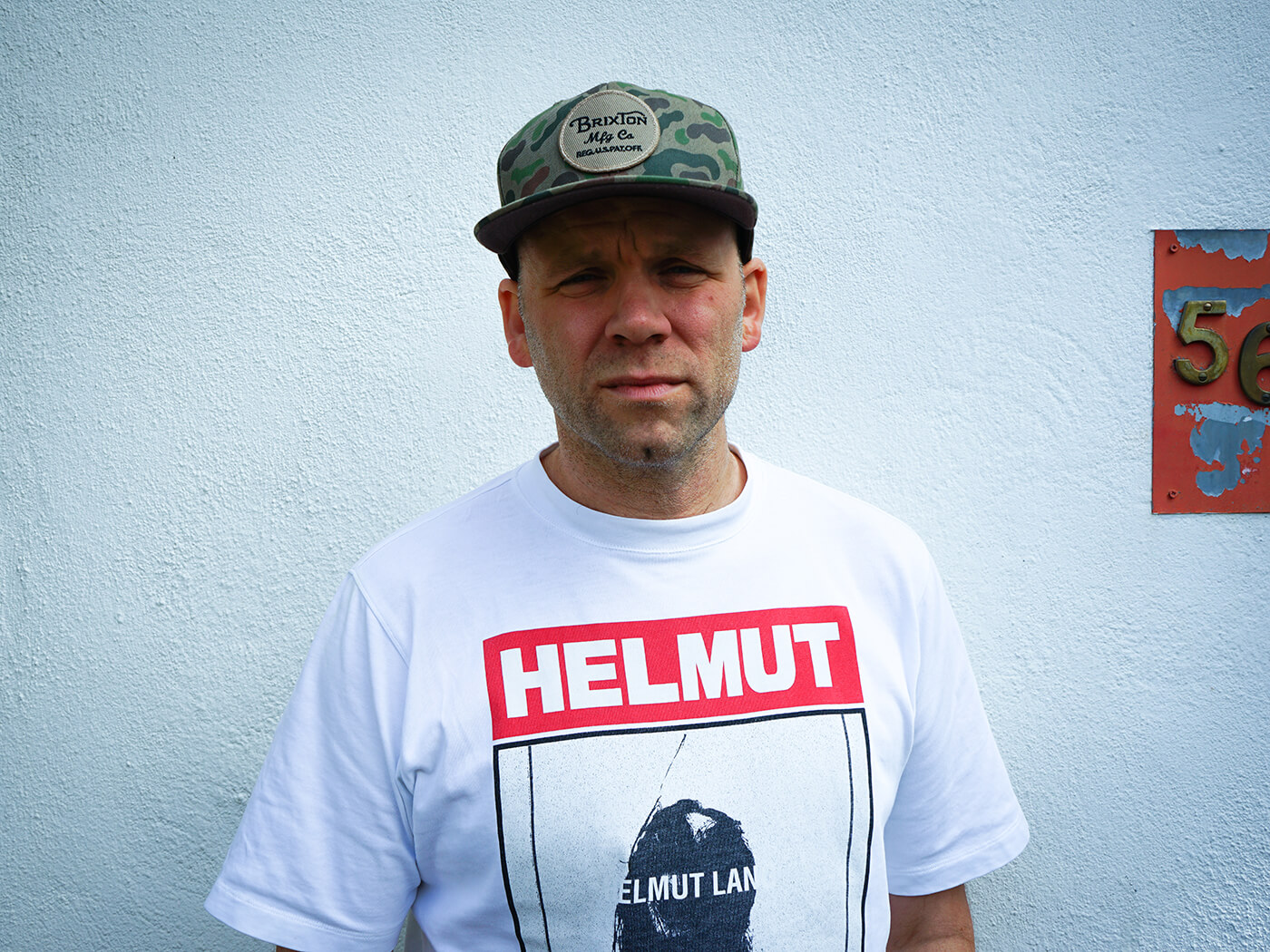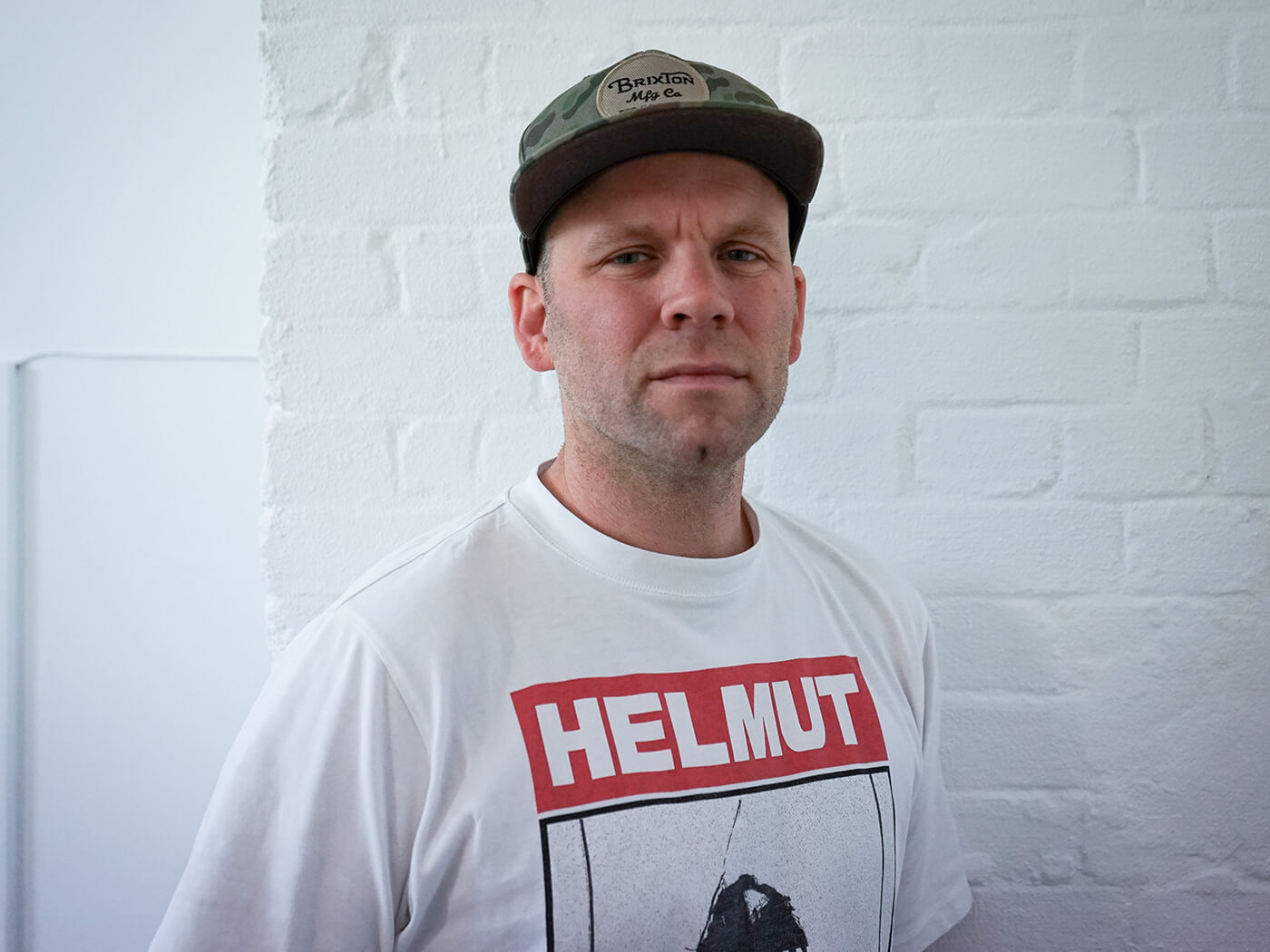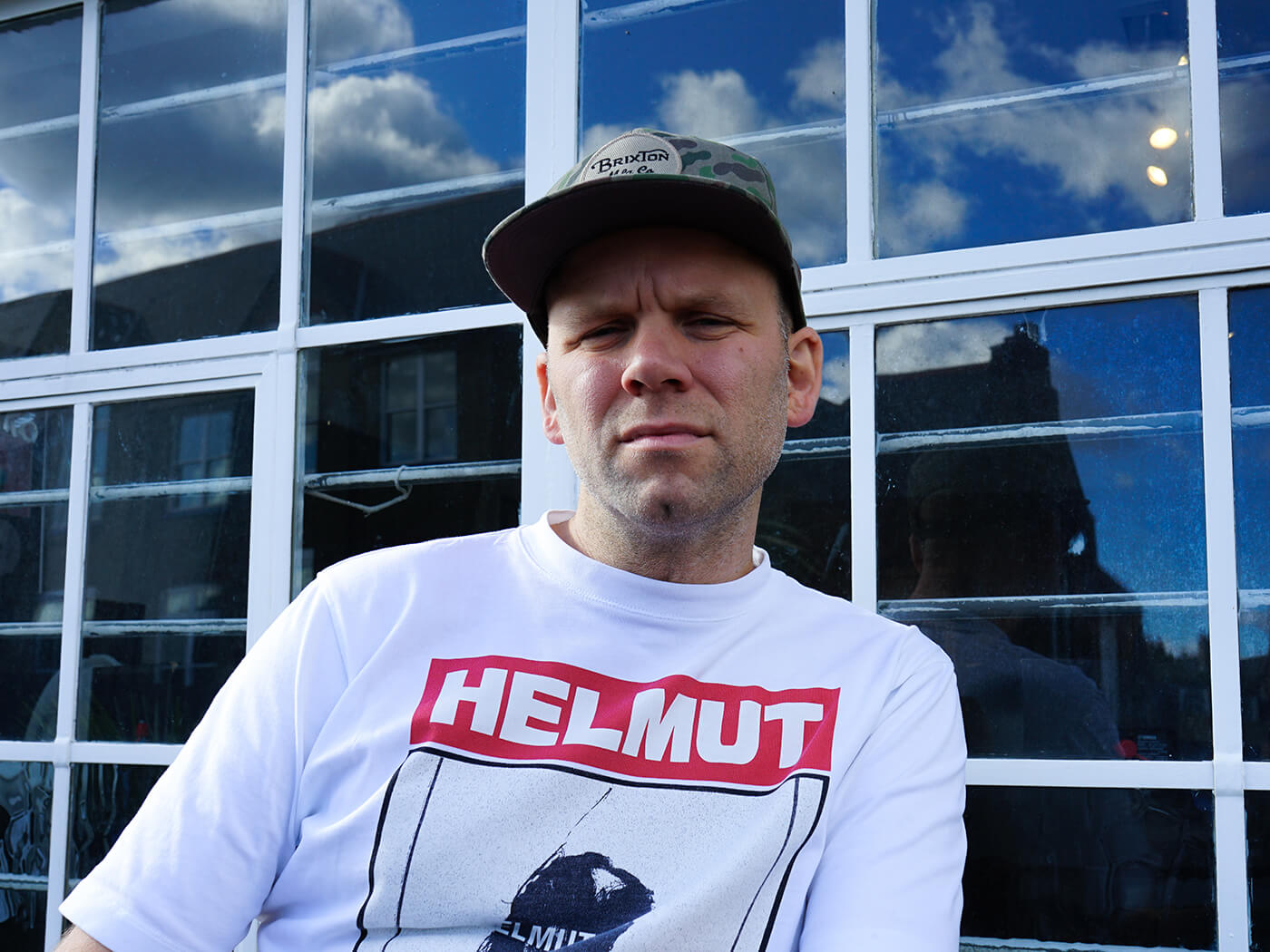Clean Bandit producer Mark Ralph on producing music with modern listeners in mind
Mark Ralph has produced some of the biggest chart smashes in recent years, working with an impressive roster of artists that includes Clean Bandit, Hot Chip, Jax Jones and many more.

What magic potion is needed to transform a song into a chart-topper in 2019? If anyone has the recipe, then it’s the brilliant producer, songwriter and musical alchemist Mark Ralph. From Hot Chip and Franz Ferdinand to Tom Walker and Jax Jones via Clean Bandit and Years & Years, Mark has had his fingers wrapped around the pulse of contemporary pop, teasing and tickling the sonics of emerging new talents into new and more exciting shapes. For him, what makes a song a success?
“Even if you’re writing music that stylistically is very contemporary, what makes a song work is a lyric, vocal melody and chord sequence,” Mark says. “That’s never changed, despite all the technological innovations around how we make and listen to music.”
It’s from Club Ralph, his Queen’s Park studio in West London, where he not only sets the charts racing but also houses talents such as UK dance producers Redlight and Mella Dee. He’s been in the area for more than 20 years and though he’s remained stationary geographically, the successes of his career has seen his star rise very high indeed.
“I moved to London to join a band and they had a studio in this part of the capital. I’ve been here ever since. The first studio I was in is opposite to where I record now, so I haven’t moved very far.”
The hitmaker
Beginning his music career as a session guitarist, Mark’s breakthrough moment was playing on a re-issue of Sister Sledge’s We Are Family in the early 90s. “I was replacing Nile Rodgers, whose parts hadn’t arrived,” he reveals. “I made the record, it became a hit and persuaded me that I was good enough to take guitar seriously. So I decided to take a year off university to focus on music, then carried on taking a year off for about a decade, until I admitted I was never going to go.”
Mark replacing the sound of ‘The Hitmaker’ – Nile’s famous guitar – seems eerily prescient, anticipating where his career was headed. From teaching guitar to performing with function bands, Mark garnered plenty of hands-on experience with pivotal moments coming at every turn. He believes experiencing first-hand how his musical heroes conducted themselves in the studio taught him the most.
“I’m constantly evolving through what I pick up from the people around me”
“When you see how people who you really respect work, it’s a demystifying moment,” he says. “When you’ve mic’d a drum kit up a million times but it still doesn’t sound like the records, then you go and sit in a room with legendary producers like Alan Moulder or Dave Allen who did all the Cure albums, it’s eye-opening. It can give you more confidence to achieve similar highs.”
Mark spent a week in the studio with dub and dancehall legends Sly And Robbie when he was in his 20s, a meeting of minds that also had a defining impact. “Sly told me no matter how old or experienced he felt, he never stopped learning. He would sit in the studio with people 40 years younger, watch them and incorporate any new ideas that resonated into his own work,” he tells us.
“That’s stuck with me: sometimes, the less experienced are more adventurous, because they are more unorthodox or use newer technology, whether that be programmes or new software. So working with them is a good way for me to stay abreast of new working methods – and I’m certainly not set in my ways when it comes to process. I’m constantly evolving through what I pick up from the people around me.”
Full speed ahead
So what music technology does Mark utilise when looking for creative sparks in the studio? Coming from a band background, he says his approach and studio setup are traditional. Technology, whether it be in the form of Pro Tools or a sound library like Splice, is there to propel him to his final musical destination quickly rather than defining his work.
“You can sit in the studio on a writing session, have the most basic chord structure, come up with a melody, say an interesting turn of phrase or lyric without necessarily needing any of the tech. This aspect of music-making hasn’t really changed in decades, but the speed at which you can get from the basic song demo to a finished, produced record by using technology has enabled that to happen much faster.”

This acceleration in musical creativity has put greater demands on artists and producers. Industry decision makers now want to hear a finessed project before taking the plunge and investing in new talent.
“30 years ago, record companies would be happy to listen to a demo of someone playing the piano and they could imagine the record,” says Mark. “Then they’d decide to make it, bring in an orchestra, choir or extra instrumentation. They’d make decisions based on something very strip backed – but they could hear the lyrics, the top-line melody, the chord structure. Now, record companies want to hear something that is pretty much finished before they make any decisions.”
Innovation
Mark uses a range of hardware and software with Pro Tools, Ableton and Logic all featuring in his studio setup. “Ableton Live stands on its own, as it allows you to throw ideas in quickly while the song is moving without disrupting the flow,” Mark says. “It’s unique in how it uses session and arranged views. So you can have lots of ideas running before you decide which combinations you like. Then you can easily transfer that into an arrangement. I find it to be a good writing tool and lots of people I work with use it in the same way.”
Ultimately, he feels innovation has always existed in the studio regardless of what equipment you had to achieve it. In the earlier days, you just had to be more determined and set aside more time to make the magic happen.
“People who believe Auto-Tune has only been around for 20 years, I’d take back to when Auto-Tune didn’t exist, but people would still manipulate vocals. They just had to do it with 70s pitch-shifting technology. Take Dave Allen, who worked on the Human League’s Dare album. They’d have to input syllable by syllable into an AMS unit with a pitch-shifter on it, nudge things up and down, then bounce it back onto tape syllable by syllable. That was still possible in 1980, but you’d need a day of studio time and three different engineers to make it happen.”
Hail to the king
In 2015, the track King by electronic pop trio Years & Years became one of Mark’s biggest-ever hits. Taken from their debut album Communion, the record not only made the group but also had a profound impact on Mark’s career, hitting the top of the charts and earning a Brit Award nomination.
The song was chosen as a single after the group’s career had started to snowball with single releases making increasingly high indentations on the upper echelons of the charts. “It was felt the right moment to do something bigger – and that can be a difficult decision to get right,” reveals Mark. “If bands peak too early, and they put their big song out first, they can find it hard to follow without having a solid fanbase. Emerging new artists need to consider this: how are you going to maximise the momentum?”
With Mark under instructions to help the band make the song as big as possible, he spent a day in the studio with the band’s lead singer and songwriter Olly Alexander, slicing and dicing the original version, rearranging verses and choruses until it was almost unrecognisable. “We butchered it – and I had saved this new version as King – experiment. I wasn’t expecting the band to like it…” says Mark, “…but they loved it when they heard it, so we then spent another couple of days producing it up. The revisiting of the writing was crucial.
“As a producer, you can be focused on the production and the aesthetic, but you also have to be unafraid of saying when the song isn’t as good as it should be. That made all the difference, rewriting and rearranging to turn it from quite a downbeat song into something that sounded like a big hit. It went to No.1, which was a massive moment for them and their career. It cemented them in the eyes of the public and got them a lot of attention.”
The role of the producer is not only to finesse, but to turn something ordinary into the extraordinary, something Mark also did with Brit Breakthrough Award winner Tom Walker.
“I worked on Tom Walker’s Just You And I. People already knew him with his big, Steve Mac-produced hit Leave A Light On. The track already existed in acoustic form, so we reworked the vocal and the music. We didn’t rewrite it as such, as the song already worked. But to turn it into a hit, you need to do something that turns your head a bit more, is more distinctive and has more energy. That’s another example of where production can make a real difference.”
Modern studio challenges
With so much musical wizardry at the fingertips of today’s producers, figuring out what to use from an almost limitless amount of resources can be daunting. Implementing restrictions on the palette from which they daub their ideas is one of Mark’s preferred ways of retaining some character in the music he works with. Too much sheen and you’re in danger of removing all the interesting edges.
“Imagine you’re in your first band, you only had a crappy keyboard and some pedals…” explains Mark. “You’d actually make a very distinctive sound. You’d have to explore every instrument and piece of gear to its maximum, because that’s all you had. I listen to early Gary Numan Tubeway Army records and he told me when I worked with him that his old band just had one synth and a flanger pedal. You listen to those records, they are so distinctive, they’re like no one else – if he’d had more gear and instruments, he’d have been spoilt for choice and they wouldn’t have the incredibly strong identity they have.”

Technology also means producers don’t have to commit to a sound or a performance, meaning it can be hard to finish or even commit to anything – ”You can always reach for the ‘undo’ button,” says Mark. “When you have limitless choices and a limitless amount of ‘undos’, it can sometimes give you too much. You’ll never quite finish, as you can always make alterations. It’s one of the great things working as I do. I’m a hybrid – I have an SSL desk (originally owned by Bowie and T-Rex production legend Tony Visconti) but use Pro Tools, combined with lots of outboard gear and hardware synths. It means once I decide on a sound and record the performance, that’s it, it’s done. I can’t recall this, I’ve committed so I move forward.”
Creative decisions are also now increasingly impacted by how music is consumed thanks to the tide of digital and music streaming sweeping all before it. While previous formats such as the seven-inch single or compact disc dictated how long releases could be, music streaming has influenced new listening habits and impacts on how albums are now structured and made.
“Albums are now almost the afterthought of an act’s campaign, with the focus now on runs of singles. That’s just how music is consumed and there’s no changing that,” reflects Mark. “But as music consumption morphs, the artform has to try and keep up. The consumer dictates as much as no one likes to admit it. Now Spotify exists, you can’t release an album and have the same impact with subsequent single releases that you used to. So you have to do all your singles first, then add tracks to make up the album. They’re no longer the coherent bodies of work as they used to be.”
New releases
With new albums by Jax Jones (Snacks (Supersize)) and Friendly Fires’ Inflorescent, which landed in August, Mark continues to be one of the busiest and most successful producers around. He’s particularly excited about the latter, who are returning to the fray with their first new music since 2012.
“The new Friendly Fires record has a great energy to it. Ed Macfarlane from the band has just hit a purple patch when it comes to his songwriting – he’s finishing more great music than ever.”
“Songs don’t have intros anymore, because if people skip them before 30 seconds, then you don’t get paid by streaming services”
With previous hit albums for Franz Ferdinand and Hot Chip, both high profile bands with numerous members, how does he approach working with a group? “It’s a bit of logistics and what I call crowd control. One person in the studio has its own challenges. But three or four all wanting to do different things and function as a band, you need a producer to take charge of that energy, otherwise you can end up in chaos if it’s not directed.”
He also manages to keep running his Club Ralph Studio alongside a diary stacked with recording commitments. Future projects include music with new electronic-rock trio Apre and Domino’s brilliant solo artist, songwriter and one-time Hot Chip drummer, Georgia.
“My wife describes herself as a music widow,” he laughs. “But it’s important to consider this kind of thing when you begin your career as a creative. When you get down to the nitty gritty, doing something you enjoy is very competitive. If you want to succeed you need to work harder than everybody else you know. That’s the reality. You have to grind hard – I do 14 hours days, six-day weeks, it’s tough – but when you get a bit of momentum, you need to keep at it.”
The future
So where is pop music now headed? Technology, it seems, is governing how we live our lives and increasingly shaping how our favourite music is made. As the man behind everything from mainstream chart smashes to more underground electronic roof raisers, Mark is well placed to comment. He believes everything is up for grabs and, though hard to imagine now, another tectonic shifting change could be just over the horizon.
“People might be fondly looking back on this era in 20 years’ time, as something else has changed and the way we listen to music has moved again,” he says. “It’s unimaginable, but at the same time, physical used to be the only way you could listen to music – no one could comprehend the idea of streaming or even watching films without renting videos from a shop. It’s hard to predict what comes next but what is a constant, is that every time the format changes, it changes the way the artform is made and marketed.”
One big difference in the way today’s biggest songs are crafted compared to the past is a growing trend for omitting intros, again due to our listening habits brought on by music streaming.
“Songs don’t have intros anymore, because if people skip them before 30 seconds, then you don’t get paid by streaming services. So this has forced everyone to compact their music and make it in a certain way.”
But rather than being concerned about the power of digital over creators, Mark is pragmatic. He feels producers and songwriters need to renew their focus on the participant who counts the most: the listener.
“I personally don’t see it as problematic – you just need to accept that when you make music, you’re doing it for other people, not just yourself. When writing music you always need to ask yourself – how are people going to consume and enjoy this? It always needs to be on your mind…”
For more Mark Ralph, follow him on Instagram and check out his website. Read more interviews with artists and producers here.